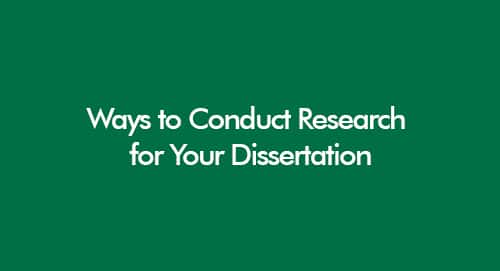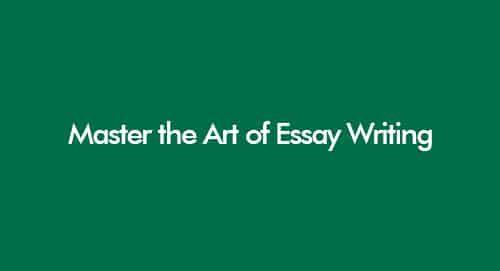
How to Write in Third Person? | Style of Narration
September 30, 2022
How to Write an Academic Phrasebank? Importance and Significance
October 3, 2022A critical reflection must be carefully planned, written, edited, and proofread, just like any other piece of writing. In other words, you must begin thinking, making notes, and writing before the deadline.
Explore New Dissertation Topics Here
Learn About Dissertation Examples Here
It's easy torn craft critical reflection poorly. It can result from rushing through the assignment at the last minute without considering the writing process or providing adequate evidence for your claims. A critical reflection should contain as many precise, convincing arguments as an essay. The following guide is designed to help you understand all you need to learn about how to write a critical reflection.
What is Critical Reflection?
Critical reflection is a method of thinking through how to interpret an event. Critical reflection can be expressed verbally, in writing, or via art creation. It is descriptive, analytical, and critical. It could also be referred to as the process of discovering, evaluating, and analyzing deeply held assumptions – about knowledge. How we interpret events and problems, our beliefs, attitudes, and behaviours are called critical reflection, sometimes a reflective essay.
Purpose of Writing Critical Reflection
The main objective of critical reflection is to alter your perspective on a matter in order to change your behaviour. All academic fields require critical reflection, although they can take many different forms. Your instructor could require you to write a formal essay, publish weekly blog posts, or write a few paragraphs to respond to a series of questions.
Explore Quick Guide on How to Write Method Section
Learn How to Write a Strong Hypothesis
The following pointers highlight the purpose of writing critical reflection:
- To increase awareness of all the choices, experiments, failures, rewrites, altered concepts, and darling skills that go into producing a quality work of literature.
- To increase your understanding of the numerous sources that writing draws from.
- To develop your ability to analyze both your own work and that of your peers by utilizing the appropriate technical and critical terminology.
- To improve your capacity to discuss your writing process in an authorly manner.
- Improve as a writer by taking notes on your attempts, achievements, and mistakes.
- To determine your writing's strengths and areas for improvement.
- Help improve your reading comprehension as a writer.
- To share my thoughts on your writing goals and ambitions.
- It increases your understanding of the process you used to write a poem, story, script, or work of creative non-fiction.
- You get a deeper grasp of how you write while acknowledging the literary influences that shaped and influenced your work.
- A broader literary, conceptual, historical, social, cultural, or political framework, as well as finally being able to situate your works within it.
Considerations While Writing Critical Reflection
Writing a critical reflection is more than merely summarizing or describing an experience or something you have observed.
- A critical reflection requires description for background, but the essence of effective reflective writing is delving into the meaning of events ("why" and "how") by offering analysis and insights into your thoughts.
- A critical reflection should contain as many precise, convincing arguments as an essay.
- A critical reflection must be carefully planned, written, edited, and proofread, just like any other piece of writing.
How to Write a Perfect Critical Reflection:
You must consider two specific stages for writing a perfect critical reflection:
- Analyze: In the first phase, ask yourself critical questions to analyze issues surrounding your topic and your role in the area of the subject. To develop good ideas at this stage, you may use free writing. You don't have to worry about writing organized paragraphs or good grammar at this stage.
- Articulate: In the second phase, you may develop a clear argument about your learnings by using your analysis. After that, organize your ideas so they are clear for your reader.
First phase: Analyze
Generally, a Three-stagged model is used for this analyzing stage which includes
"What?----> So What?------> Now what?"
- What?
In the What? Stage, you must describe the issue associated with the area of the subject. This may include targeting your role, observations, and reactions. This stage helps you to observe your feelings and thoughts before writing a critical reflection. You can use the following questions as a guide for this initial observation:
- What happened?
- What did you do?
- What did you expect?
- What was different?
- What was your reaction?
- What did you learn?
- So What?
In the second So What? stage, you must try to understand on a deeper level. Take a comprehensive insight into why your targeted issue is important or relevant. Here it would help if you considered the following perspectives to answer this question:
- Information from your first stage
- Your course materials, such as readings, lectures, and discussions
- Previous experience
- Knowledge
- Now What?
In the third Now what? Stage, you must try to explore how the experiences will reconstruct your future thinking and behaviour. It would help if you considered the following questions as a guide:
- What will be your actions as a result of your experiences?
- What will you do differently?
- How will you apply your learnings?
Second phase: Articulate
After accomplishing the analysis stage, you may have collected a pile of useful information in the form of writing. However, it is still not organized into a coherent story to write a critical reflection. Therefore, in the second stage of articulation, you must build an organized and clear argument about your learnings and the change you have experienced or brought about. For this purpose, you must develop a thesis statement, make an outline, and write and revise the content.
Developing a thesis statement
Develop a clear argument and write a relevant thesis statement so your reader can understand what you learned. The argument, however, should combine different themes from your analysis into the main idea.
Make an outline
Once you have achieved a clear thesis statement for your essay, build an outline for the Critical Reflection. You can consider the following structure to organize your essay:
- Introduction
- Background/Context of Reflection
- Thesis statement
- Body
- Paragraph A
- Introduce theme A
- Your past thinking
- Moment of learning or change
- Your current thinking
- Paragraph/Section B
- Introduce theme B
- Your past position/thinking
- Moment of learning or change
- Your current/new position
- Paragraph/Section C
- Introduce theme C
- Your past position/thinking
- Moment of learning/change
- Your current/new position
- Paragraph A
- Introduction
- Conclusion
- Summarize learning
- Discuss the significance of learning for self and others
- Discuss your future actions or behaviour
- Write and wise
- Summarize learning
Review the following:
- How to Write a Reflective Essay: Expert Advice
- How to Write a Self-Reflection? Practical Tips for Sucess
- The Ultimate Guide to properly format Your Essay
Need help with writing an excellent Critical Reflection?
We hope this article has assisted you in understanding how to write a critical reflection on a basic level and given you some ideas on what to include. If you need help getting started on your critical reflection writing or would like us to take care of the entire process for you, please don't hesitate to contact our team at Premier Dissertation by simply dropping us a message on Whatsapp or by Email, and we will get back to you within 24 hours. We would be pleased to help you in any manner we can. Thanks again for reading!
Get 3+ Free Dissertation Topics within 24 hours?
Get a Dissertation Proposal – Get Going!
Dissertation Proposal Lays Down the Outline of Your Final Dissertation
Get a Dissertation Proposal that matches your requirements, which includes the topic title, research aim and objective, research questions, research gap, literature review, methodology and list of reference papers.
The Dissertation Proposal will be foundation of your final dissertation. It is very important to get this done perfectly to avoid any problems!



























